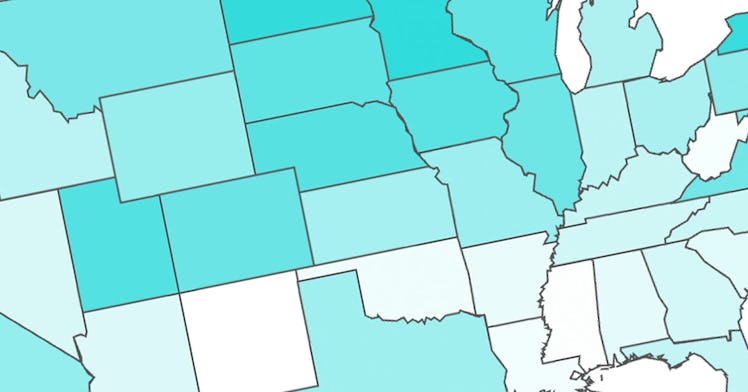Here’s A Map of The Best (And Worst) States To Raise A Family
Where does your state rank?

Good news, Pats nation! The Bay State is the best state to raise a family. Well — at least according to a new study.
A new WalletHub report that took into account 52 “key metrics of family-friendliness” to rate how easy it is for parents living in each state has come out and said it: the home of Elizabeth Warren is the best place to raise a family. They’re split into five evenly weighted categories—family fun, health & safety, education & child care, affordability, and socioeconomics—that reflect some of the priorities parents might have when deciding where to raise their kids.
Massachusetts earned the top spot thanks to its high marks in education and child care (third overall) and affordability (sixth). It was also in the top ten for family fun (number of attractions and rec centers, among other factors) and health and safety.
Minnesota ranked second thanks to strong marks across the board, particularly health and safety and socioeconomics (fifth in both). North Dakota was third, as the top state on the socioeconomics metric, second-best in education & child care, and seventh in health & safety. Rounding out the top five are New York and Vermont.
Source: WalletHub
On the other end of the spectrum, Oklahoma, Louisiana, West Virginia, Mississippi, and New Mexico were the worst states to raise a family. The map uses a color-coded feature — the darkest hue of teal count for the best places to raise a family whereas the lightest are the worst. The full list is viewable on their website. Does that mean it’s impossible to raise a family in those states, or even that it will be difficult for everyone? Of course not.
“Parents and children can do well in any state. But doing your best will indeed be easier in some states than in others, and child development is better on average in some states than in others,” says Dave Riley, Ph.D., a professor at the University of Wisconsin-Madison School of Human Ecology who took part in the report.
“I would remind young families that having an extended family and friends nearby is crucial,” Riley continued, identifying one of the many individual factors that parents should consider outside of the scope of the report. Policymakers, on the other hand, might want to take a look at the results, which reveal what their states could be doing better to attract more families and better serve the ones who already live in their states.
This article was originally published on